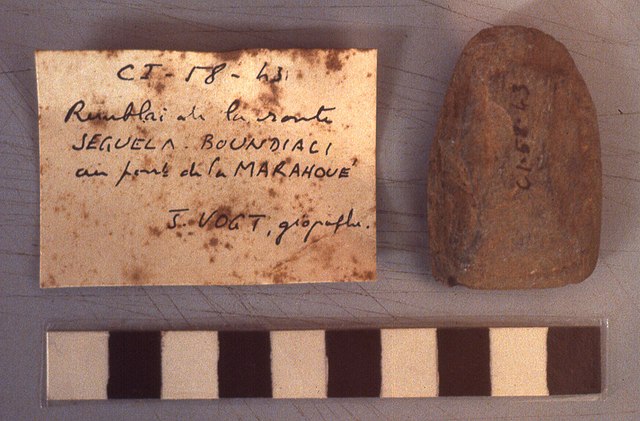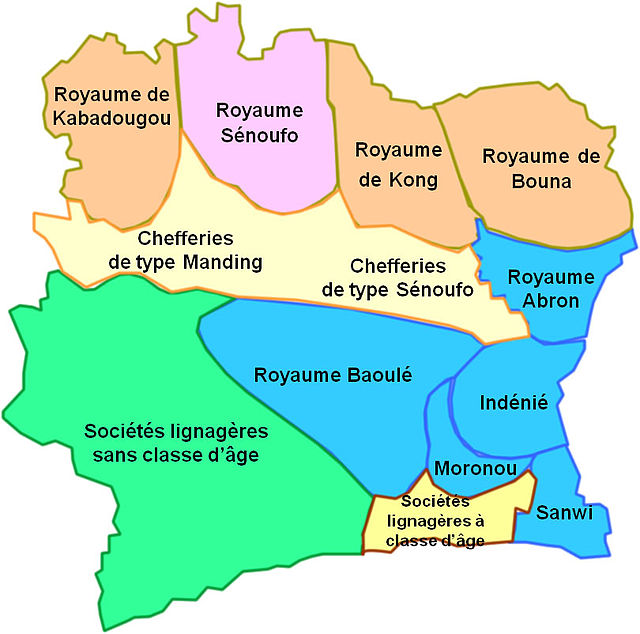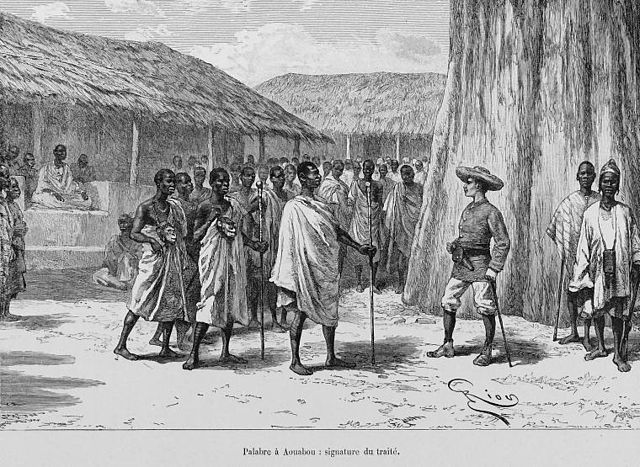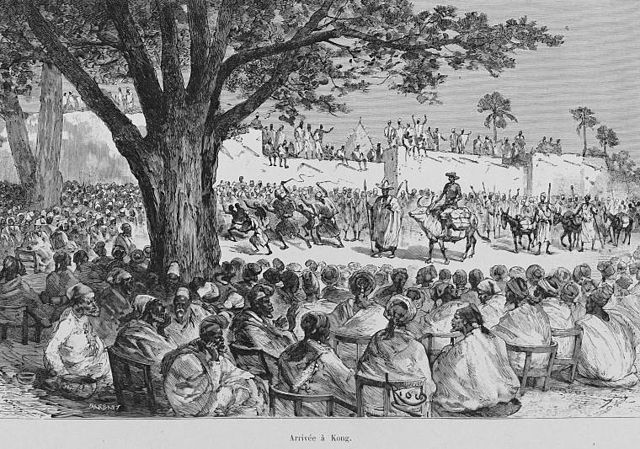Félix Houphouët-Boigny, affectionately called Papa Houphouët or Le Vieux, was an Ivorian politician and physician who served as the first president of Ivory Coast from 1960 until his death in 1993. A tribal chief, he worked as a medical aide, union leader, and planter before being elected to the French Parliament. He served in several ministerial positions within the French government before leading Ivory Coast following independence in 1960. Throughout his life, he played a significant role in politics and the decolonisation of Africa.
Houphouët-Boigny in 1962
The Palais Bourbon, where Houphouët-Boigny was appointed to the territorial commission
Houphouët-Boigny in 1958
Boingy with Israeli Prime Minister Golda Meir, 1962
Ivory Coast, also known as Côte d'Ivoire and officially the Republic of Côte d'Ivoire, is a country on the southern coast of West Africa. Its capital city of Yamoussoukro is located in the centre of the country, while its largest city and economic centre is the port city of Abidjan. It borders Guinea to the northwest, Liberia to the west, Mali to the northwest, Burkina Faso to the northeast, Ghana to the east, and the Gulf of Guinea to the south. With 30.9 million inhabitants in 2023, Ivory Coast is the third-most populous country in West Africa. Its official language is French, and indigenous languages are also widely used, including Bété, Baoulé, Dioula, Dan, Anyin, and Cebaara Senufo. In total, there are around 78 different languages spoken in Ivory Coast. The country has a religiously diverse population, including numerous followers of Islam, Christianity, and traditional faiths like Animism.

Prehistoric polished stone celt from Boundiali in northern Ivory Coast, photo taken at the IFAN Museum of African Arts in Dakar, Senegal
Pre-European kingdoms
Louis-Gustave Binger of French West Africa in 1892 treaty signing with Famienkro leaders, in present-day N'zi-Comoé Region, Ivory Coast
Arrival in Kong of new French West Africa governor Louis-Gustave Binger in 1892.








